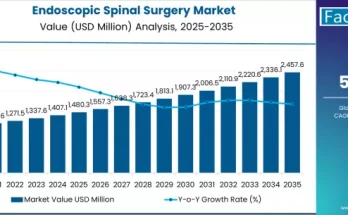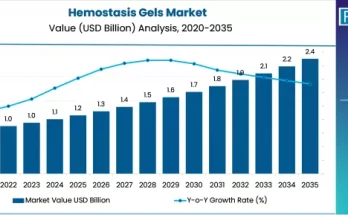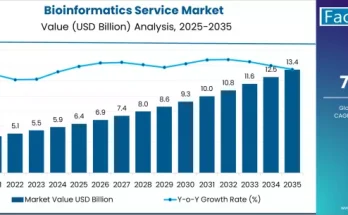Sales of anti-adhesion products are predicted to progress at a high CAGR of 7.5% from 2022 to 2030, says Fact.MR, a market research and competitive intelligence provider.
Adhesions are bands of sticky tissues that bind to the surfaces of internal organs and tissues, obstructing the site where they occur. Adhesions can cause serious medical issues such as intestinal obstruction, persistent discomfort, infertility, and restricted movement.
Furthermore, inflammatory medications such as non-steroidal anti-inflammatory medicines (NSAIDs), corticosteroids, and calcium channel blockers are recommended, along with surgical techniques such as laparoscopy and precise hemostasis to avoid adhesions. The most efficient method of eliminating adhesions is said to be adhesion barriers, which are anti-adhesion products.
Demand for anti-adhesion products is likely to be fuelled by the increased incidence of surgeries among the world’s population, which are primarily brought on by lifestyle conditions. Chronic pelvic pain, infertility, and intestinal obstruction are usually triggered by adhesions that develop after abdominal surgical procedures.
Many products, in the form of gel, film or fluid, are widely used to halt the development of postoperative adhesions. Due to the increasing need for anti-adhesion solutions, pelvic operations typically results in inevitable tissue injuries, which can cause post-surgical adhesion to form.
Due to the increased demand for anti-adhesion products, target diseases such as cancer, pelvic operations, and C-sections have become much more prevalent.
- The most prevalent illnesses, according to the National Cancer Institute, are endometrial cancer, bladder cancer, renal pelvic cancer, rectum cancer, breast cancer, colon cancer, prostate cancer, melanoma of the skin, and non-Hodgkin lymphoma.
Key Takeaways from Market Study
- Currently, the global anti-adhesion products market is valued at US$ 678.5 million.
- The global market is predicted to reach a valuation of US$ 1.2 billion by 2030.
- Demand for synthetic anti-adhesion products is expected to increase at a CAGR of 8.5% and reach US$ 718.6 million by 2030.
- Sales of anti-adhesion products are expected to rise at an impressive CAGR of 11.3% and reach US$ 287.4 million by 2030.
“Increasing cases related to sports injuries and trauma, which leads to surgeries, are expected to increase the demand for anti-adhesion solutions,” says a Fact.MR analyst.
Winning Strategy
Some of the key players included in this report are Anika Therapeutics, Inc., Baxter International Inc., Ethicon Inc., FzioMed, Inc., Integra LifeSciences Holdings Corporation, Magen OrthoMed Ltd., MAST Biosurgery AG, and Sanofi SA.
To improve their market position and product portfolio, key players are concentrating on implementing a variety of tactics, including new product launches, investments in R&D, mergers and acquisitions, partnerships, joint ventures, and collaborations.
- Oxiplex/IU, a synthetic adhesion barrier product, was introduced by FzioMed in October 2018.


